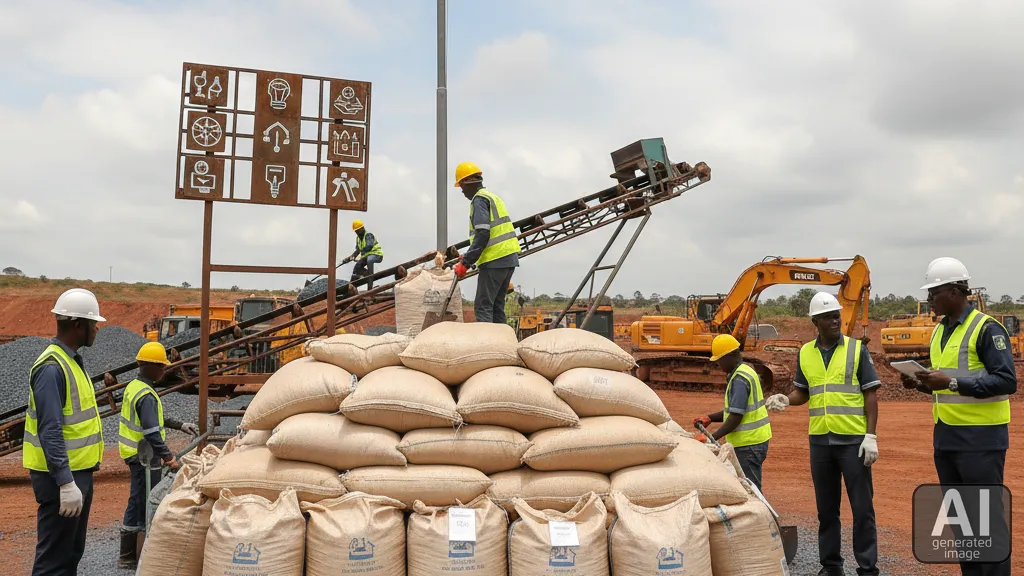Congo Launches Era of Traceable Artisanal Cobalt with First 1,000 Tons

Congo produces its first 1,000 tons of traceable artisanal cobalt, advancing ethical mining, stabilizing markets, and strengthening its global supply chain role.
The Democratic Republic of Congo has entered a pivotal new phase in its mineral development strategy with the production of its first 1,000 tons of fully traceable artisanal cobalt. This milestone, achieved under the leadership of the state owned Entreprise Générale du Cobalt, represents a formal shift toward regulated, transparent, and ethically validated cobalt production. By launching this initiative in Kolwezi, the epicenter of the nation’s cobalt industry, Congo is signalling its commitment to responsible resource governance and to aligning local mining operations with growing global expectations for ethical minerals.
Congo’s dominance in the cobalt sector is well established, since the country possesses roughly 72 percent of global reserves and supplies more than 74 percent of the world’s output. Against this backdrop, artisanal mining plays a crucial socioeconomic role, supporting an estimated 2 million workers and indirectly sustaining the livelihoods of more than 10 million people. However, the artisanal segment has long faced challenges linked to untracked supply chains that create reputational risks for buyers and elevate costs for companies seeking verified ethical material. By introducing a comprehensive traceability system, EGC aims to reduce these vulnerabilities and position Congo as a reliable source of responsibly mined cobalt.
The government’s broader policy interventions further reinforce this objective. In October, Congo implemented export quotas designed to curb oversupply and stabilize prices, especially for traceable materials. The quota framework managed by ARESCOM also encourages local value addition since it disincentivizes the unprocessed export of raw materials. EGC’s newly announced traceability mechanism complements these measures by ensuring that artisanal cobalt reaching the market complies with international ESG requirements, which are increasingly important for end users such as automakers and electronics manufacturers.
Although EGC has not disclosed how the initial batch of 1,000 tons will be marketed, the company has made clear that it intends to scale production significantly. Plans include expanding refining capacity and increasing its share of the artisanal cobalt market, which aligns with projected global demand growth of about 40 percent by 2030 due to the expansion of electric vehicles and energy storage technologies. As major multinational firms tighten their procurement standards and require documented proof of ethical sourcing, Congo’s traceable cobalt initiative positions the country to capture greater market influence while improving governance across the artisanal mining ecosystem.
Looking ahead, Congo’s move toward transparent and formalized artisanal cobalt production has the potential to reshape the mining landscape across Africa. By demonstrating that artisanal sectors can be integrated into regulated global value chains, the country may set a precedent for other resource rich economies seeking to enhance revenue, strengthen compliance, and elevate the socioeconomic benefits derived from mineral extraction. If implemented effectively, this initiative could deepen Africa’s participation in critical mineral supply chains and reinforce its strategic importance in the global energy transition.
Mini Glossary
- Artisanal mining: Small scale, often informal mining conducted by individuals or small groups using basic tools.
- Traceability: The ability to track a product’s origin and supply chain journey to verify ethical and legal compliance.
- ESG standards: Environmental, Social and Governance criteria used to assess the sustainability and ethical impact of an operation or investment.
- Oversupply: A market condition where production exceeds demand, which usually reduces prices.
- Refining capacity: The ability of a facility or company to process raw minerals into higher value, purified products.
